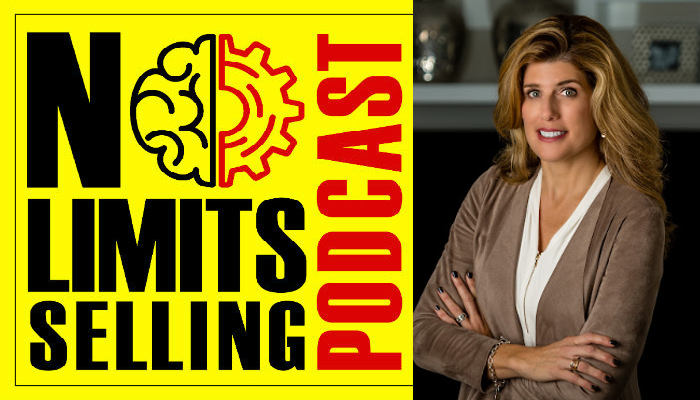Julie Walker, Executive Director at The Peyton Walker Foundation
On Episode 66 of The No Limits Selling Podcast, we have Julie Walker, Executive Director at The Peyton Walker Foundation. Julie is a lifesaving difference-maker. When life threw Julie a curveball in 2013 with the tragic and unexpected death of her 19-year-old daughter, she dusted herself off and immediately launched a highly impactful, results-oriented nonprofit in response to this most devastating loss. In addition to leading the lifesaving work of The Peyton Walker Foundation, Julie also runs a meeting/event planning business - Choice Meetings.
Delivering memorable, well-executed, and successful meetings is her core focus. With close to 30 years in the meetings and hospitality industry. She prides herself on being a well-respected and upstanding professional with high integrity and unwavering ethics.
Podcast Highlights:
- When you fall down, GET UP!
- Everyone is here for a reason, find yours
- Find the inner-strength

Contact Julie:
Check out my new project. NeuroBoosterz is a web-app that lets you take control of your mindset. Use the 7-day free trial to test it out.
[EDITOR’S NOTE: This podcast is sponsored by No Limits Selling. It is a fun, fast-paced podcast that delivers hard-fought business advice that you can implement today to improve your sales and performance]
Interested In Our Real Estate Coaching Services? Explore Our Website: Link
Feeling Not Well Today? You Can Use Our Mindset Boosters App To amp Up Your Mood: Link
Find us on Social Media:
LinkedIn | Facebook community | Instagram
Like what do you listen to? Subscribe to our podcast!
Ready to become fearless? We can help you become fearless in 60 days so you accomplish more in your career Schedule A 15 min Call with Umar
Summary
Introduction
The podcast begins with the host, Umar Hameed, introducing Julie Walker, the Executive Director of the Payton Walker Foundation. Julie is also the CEO of Choice Meetings. The host expresses his admiration for Julie and her work, and mentions his new project, Neuro Boosters.
The Tragic Incident
The conversation takes a somber turn as Julie recounts the tragic day of November 2, 2013, when she received a phone call informing her that her daughter, Peyton, had been taken to the hospital. Peyton, who was a sophomore student at King's College, had been admitted in full cardiac arrest. Despite being rushed to the hospital, Julie and her family did not get a chance to say goodbye to Payton, who passed away in her apartment.
The Birth of the Peyton Walker Foundation
In the aftermath of this tragedy, Julie and her family decided to start the Payton Walker Foundation. They were motivated by the desire to prevent other families from experiencing the same loss. Julie mentions that she and Peyton both had a genetic heart condition, which made them more aware of the potential risks. Despite this knowledge and proactive measures, Peyton's cardiac arrest was unexpected. This led Julie to realize the importance of heart screenings, particularly for young people.
The First Heart Screening
The first heart screening event organized by the Payton Walker Foundation took place in February 2015, about 15 or 16 months after Peyton's passing. The event was successful, with significant findings in a couple hundred kids. Julie emphasizes the importance of these screenings, as traditional physicals often fail to detect electrical problems in the heart that can lead to cardiac arrest.
Fundraising and Support
To fund the heart screenings, the foundation relies on donations from the community, businesses, healthcare systems, and private donors. Julie expresses her gratitude for the overwhelming support they have received. She also mentions a fundraising campaign they are currently running, called "A Night In on Peyton's Birthday," which takes place on December 19.
Lessons Learned and Future Plans
Throughout the podcast, Julie reflects on the lessons she has learned since starting the foundation. She admits that she didn't know how to fundraise or ask for sponsorships when she first started, but she has learned a lot along the way. Despite the emotional toll of her work, she finds it rewarding and important. Looking forward, Julie plans to continue growing the foundation and providing heart screenings to as many children as possible.
Conclusion
The podcast interview with Julie Walker, hosted by Umar Hameed, is a poignant narrative of personal loss transformed into a mission of community service. After the tragic loss of her daughter, Peyton, due to a sudden cardiac arrest, Julie Walker established the Peyton Walker Foundation. The foundation's primary objective is to prevent similar tragedies by conducting heart screenings for young people, a service that has already identified significant findings in hundreds of children. Despite the initial challenges of fundraising and sponsorship, the foundation has received substantial support from the community, businesses, and private donors.
Julie's story is a testament to resilience and the power of channeling grief into a cause that safeguards the health of the community's youth. The foundation's work, driven by Julie's unwavering commitment, continues to make a significant difference in the community, turning a personal tragedy into a beacon of hope and prevention.
Questions & Answers
Who is Julie Walker?
What is the Payton Walker Foundation?
Why was the Payton Walker Foundation established?
What services does the Payton Walker Foundation provide?
How does the Payton Walker Foundation fund its operations?
What has Julie Walker learned since starting the Payton Walker Foundation?
What are the future plans for the Payton Walker Foundation?
Don’t miss this opportunity to transform your real estate career with one-on-one coaching. As an experienced real estate coach, I, Umar Hameed, am dedicated to helping you unlock your full potential and achieve your real estate goals. To learn more about who am I and my clients ↓
If you’re ready to take the next step, book an appointment with me today and begin your journey toward success in the real estate industry.
